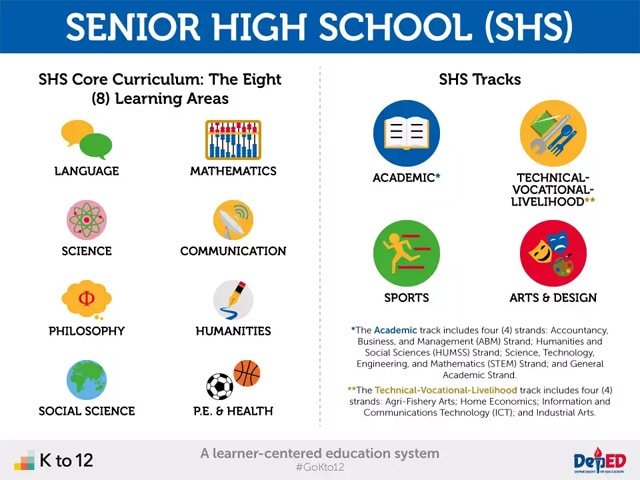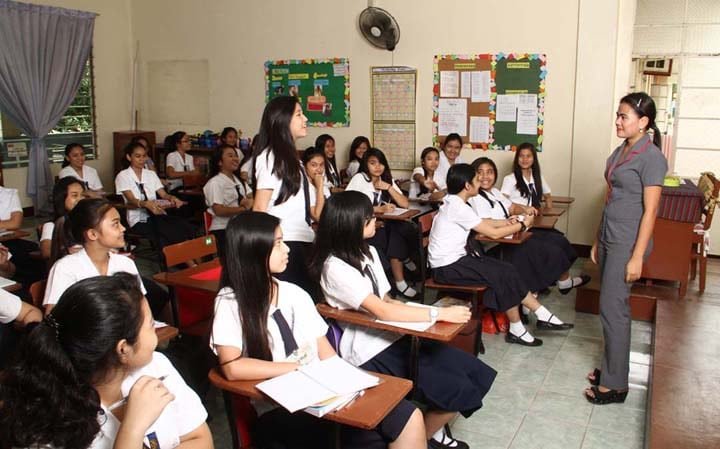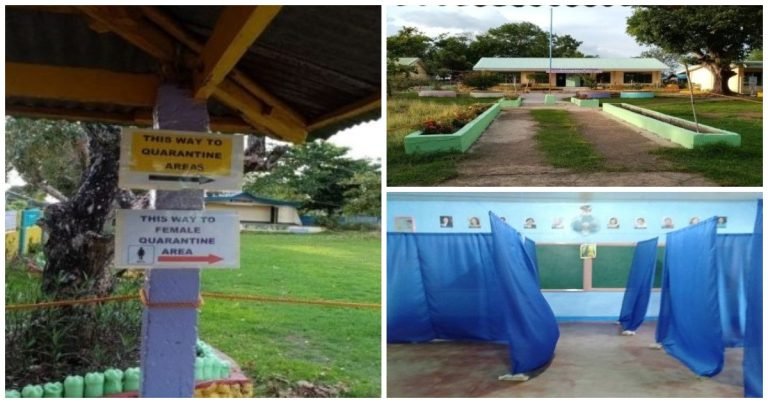“Some senior high school students (SHS) cannot even write a decent English sentence,” that’s the alarming statement released by the think tank Philippine Institute for Development Studies (PIDS).
PIDS consultant Kristel Brillantes said that many students are simply completing lessons and submitting projects only for compliance, without really understanding what they are making. The students simply lack basic SHS competency.
According to Brillantes, the students are prevented from applying what they learn from the SHS curricula, mostly because it is ‘too ambitious’. She believes the curricula was designed for urban students such as advanced science schools in Metro Manila but is too difficult to implement in other areas.
Photo credit: Philippines Report
Too Much Reporting
A lot of students also complain about too much reporting as they believe they are becoming teachers to each other while their real teachers just sit and watch what they are doing.
But with the students still being students, they are learning far less from their peers than what they are supposed to get from their teachers, the report further explained.
Lack of Resources
The blame could also be entirely put on the students and their teachers. In many places across the country, many schools lack enough resources for learning. According to the PIDS article, students are learning about computer literacy even without computers. So, they find it difficult to join discussions on the subject because they don’t really have knowledge about the actual subject.
Teachers often face challenges in teaching students due to “insufficient guidelines, inadequate materials, and preparations.” As such, they could only impart limited knowledge to their students, leading to students who struggle to learn.
Struggles of Sports, Arts Tracks
Students under the Sports and Arts tracks also face additional challenges. Many have to juggle time for their academic lessons and extra activities, including sports competitions, but they are also looked down on by other students and even by teachers.

Photo credit: DepEd
“They feel that people think they are not smart enough because they are in the Sports or Arts track,” the PIDS consultant shared.
“DepEd should help them understand why there has to be different SHS tracks, as it is currently unclear to both the students and the teachers, leading to bias against those pursuing Sports and Arts tracks.”
Lack of Resources
Brillantes agrees, though, that the problems are ‘birthing pains’ in the SHS program, but just due to the lack of preparedness in the part of the students.
“Certainly, the SHS program is facing many challenges, which hopefully are mostly mere birthing pains that can be addressed as soon as implementation procedures continue to stabilize and take root,” she added.
Brillantes revealed that inadequacies in program inputs, including human and learning resources, school buildings, tools, facilities, and equipment have a huge impact on students’ learning.
“DepEd’s human resources, especially teachers, have been its biggest asset in the implementation of SHS, hence they should be better equipped and supported in delivering the curriculum,” she said.
Brillantes urged the DepEd to improve coordination with other agencies, such as the Commission on Higher Education (CHED) and the Technical Education and Skills Development Authority (TESDA), to smoothen out the policies related to SHS as well address stakeholders’ confusion with the policies.
Source: PIDS Report




